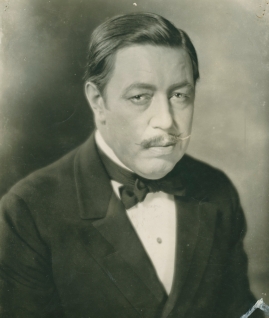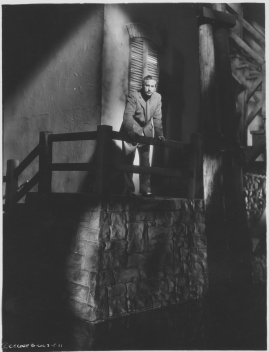Warner Oland
Table of contents
- Basic facts
- Links and resources
- Biography
- Awards
- Films
- Original work
- Soundtrack listing
- Groups
Basic facts
Media (1)
| Alternative names |
|
|---|---|
| Cast |
|
Biography
Swedish-American actor. Born in Bjurholm, Västerbotten. Died in Stockholm-Warner Oland was one of the first Swedish film stars in Hollywood. In a film career that spanned 25 years he played opposite the likes of Garbo, Dietrich and Boris Karloff, and was directed by von Sternberg, Curtiz and Wellman. In the late 1920s and for much of the 1930s he was very popular, especially for his recurring portrayals of the film Orientals Dr. Fu Manchu and Charlie Chan. Yet although he appeared in such hallowed cinematic milestones as The Jazz Singer (Alan...
Links and resources
Biography
Swedish-American actor. Born in Bjurholm, Västerbotten. Died in Stockholm
-
Warner Oland was one of the first Swedish film stars in Hollywood. In a film career that spanned 25 years he played opposite the likes of Garbo, Dietrich and Boris Karloff, and was directed by von Sternberg, Curtiz and Wellman. In the late 1920s and for much of the 1930s he was very popular, especially for his recurring portrayals of the film Orientals Dr. Fu Manchu and Charlie Chan. Yet although he appeared in such hallowed cinematic milestones as The Jazz Singer (Alan Crosland, 1927) and Shanghai Express (Josef von Sternberg, 1932), he still remains something of a parenthesis in the literature of Swedish film history.
As a teenager in the 1890s Värner Ölund emigrated with his parents from the northern Swedish town of Bjurholm to the East Coast of the US. The family Americanised their names and he became Warner Oland. On leaving school he started theatre studies in Boston, making his stage debut at the age of 19 and spending the ensuing decade as a touring actor. During this time he also managed - together with his wife, the portrait painter Edith Shearn - to produce the first translations of August Strindberg into English, alongside some of the plays of Henrik Ibsen.
In 1912 he made his film debut as John Bunyan in Pilgrim's Progress (directed by Francis Powers), but it was to be five years before he returned to the cinema in earnest, playing opposite Theda Bara in Sin (Herbert Brenon, 1915). With his imposing frame and swarthy looks, Oland made a name for himself during the 1920s playing typical villains, often with exotic character traits. From Patria (Jacques Jaccard, Leopold Wharton, Theodore Wharton, 1917) through to Charlie Chan at Monte Carlo (Eugene Ford, 1937) Oland played the part of an Oriental in roughly half of the 80 or so films he took part in during the period.
In 1931 Oland played Charlie Chan for the first time, in Charlie Chan Carries On (directed by Hamilton MacFadden). He was to reprise the role as the Chinese-Hawaiian detective, created by author Earl Derr Biggers, 15 times. Oland's origins and his not so typical Swedish appearance were an object of interest in the US. He was also popular in Sweden from early in his career, with an article about him appearing the magazine Filmjournalen in 1921. Interestingly enough, this article also focussed on Oland's nonstandard appearance, although this time from a Swedish point of view. When Charlie Chan at the Opera (H. Bruce Humberstone, 1937) premiered in Sweden in March 1937, the newspaper Svenska Dagbladet wrote: "Warner Oland has continued to develop the character of his detective into a minor masterpiece of the art of expressive acting."
In the same year the Stockholm newspapers were enthusiastically reporting that Oland was planning to come "home" for the summer. But this homecoming turned out to be anything other than glamorous. In 1937, while filming "Charlie Chan at the Ringside", Oland made his excuses to go off for a glass of water and then disappeared without trace. This film shoot was to become his last. It soon became apparent that Oland had gone back to Sweden. His health was frail from many years of alcohol abuse. When he subsequently contracted pneumonia he was admitted to a hospital in Stockholm where he died in the early autumn of 1938. The film he had been shooting was re-written as Mr. Moto's Gamble (James Tinling, 1938), in which Peter Lorre took on the role of Oriental master detective. Oland's death was international news. He was praised for his acting skills and also for his ability, using limited means, to achieve fascinating transformations. This fascination is even reflected in the films themselves. In Shanghai Express an American businessman puts Warner Oland's mystical allure into words: "I can't make head or tail out of you, are you Chinese or are you white or what are you?"
Kim Fahlstedt (2015)
(translated by Derek Jones)
Films
| Cast |
|
|---|


